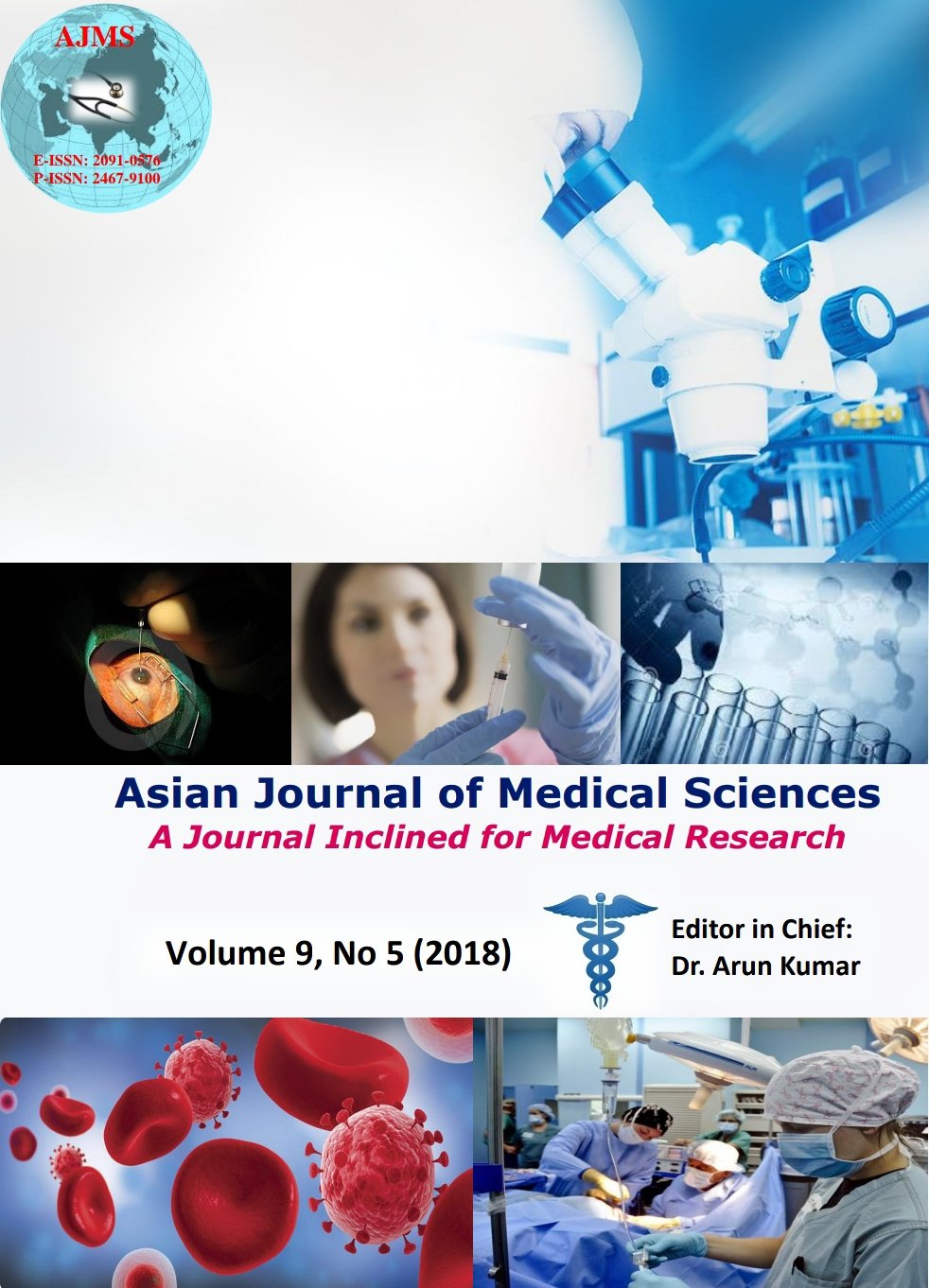Effects of quinine sulfate- an antimalarial drug on palatal growth in developing mice embryo: A histopathological study
Keywords:
Quinine, Teratologenesis, Clefting, MesenchymaAbstract
Background: Malaria is one of the most common infectious and fatal diseases worldwide. Quinine sulfate is one of the antimalarial drug used to treat chloroquine resistant malaria and malaria falciparum.
Aims and Objectives: The present study was designed to assess its developmental defects on mice palate.
Materials and Methods: Thirty adult pregnant female Swiss albino mice were used in the present work. They were divided into five groups of six each. One control group (c) with 6 pregnant mice received normal saline orally from day 6 to 15 of gestation. Four treated groups of 6 pregnant mice each were formed. Treated groups T1, T2, T3 and T4 were administered Quinine sulfateorally with 50, 100, 200, 400 mg/kg bw/day from day 6 to 15 of gestation respectively.
Results: No palatal abnormalities were observed histologically in the control and T1 treated group. However, varying degrees of clefting of the palate, from failure of elevation of the palatal shelves to failure of fusion in the midline were observed in the Quinine sulfate treated groups (T2, T3 & T4).
Conclusion: Quinine sulfate induced defects in the developing palate in the present study by disturbing the process of palatogenesis, which is characterized by incomplete growth, elevation or fusion of the palatal shelves.
Asian Journal of Medical Sciences Vol.9(5) 2018 31-36
Downloads
Downloads
Published
How to Cite
Issue
Section
License
Authors who publish with this journal agree to the following terms:
- The journal holds copyright and publishes the work under a Creative Commons CC-BY-NC license that permits use, distribution and reprduction in any medium, provided the original work is properly cited and is not used for commercial purposes. The journal should be recognised as the original publisher of this work.
- Authors are able to enter into separate, additional contractual arrangements for the non-exclusive distribution of the journal's published version of the work (e.g., post it to an institutional repository or publish it in a book), with an acknowledgement of its initial publication in this journal.
- Authors are permitted and encouraged to post their work online (e.g., in institutional repositories or on their website) prior to and during the submission process, as it can lead to productive exchanges, as well as earlier and greater citation of published work (See The Effect of Open Access).




